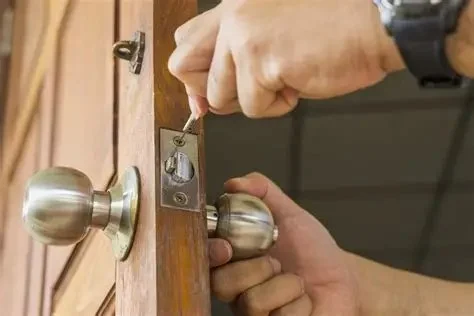
- 1 - Understanding Lock Cracking and Its Risks
- 2 - How Lock Cracking Happens: Causes and Indicators
- 3 - Preventing Lock Cracking: Practical Locksmith Tips
- 4 - Upgrading Your Home Security to Prevent Lock Cracking
- 5 - When to Call a Professional Locksmith
1. Understanding Lock Cracking and Its Risks
Lock cracking is a term used to describe the process by which a lock is forced open, often using methods that damage the lock mechanism. It is a common method used by burglars to gain access to homes or buildings. Understanding lock cracking and its potential risks can help you take proactive steps to protect your property.
The primary risk of lock cracking is that it compromises the security of your home. If a burglar cracks your lock, they can gain easy access to your property, putting your belongings and loved ones at risk. Lock cracking can also cause damage to the locking mechanism, making it harder to operate your locks even after the break-in attempt.
2. How Lock Cracking Happens: Causes and Indicators
Lock cracking usually occurs when someone attempts to bypass a lock without using a key. This can be done through various methods, such as lock picking, bumping, or forceful entry. Understanding how it happens can help you better protect your home:
- 1. Lock Picking: Lock picking involves manipulating the pins inside the lock to align them and allow the mechanism to turn. While it requires skill and practice, it is a common method used by thieves to crack locks without causing noticeable damage.
- 2. Lock Bumping: Lock bumping involves using a specially cut key (a bump key) to manipulate the internal pins in a lock. This method can quickly open most standard pin tumbler locks without leaving any evidence of tampering.
- 3. Forced Entry: In some cases, burglars may use physical force, such as hitting the lock with a hammer or using a crowbar, to crack the lock open. This method is typically more destructive but is effective in gaining access to a property.
- 4. Signs of Vulnerability: If your locks show signs of wear and tear, rust, or misalignment, they may be more vulnerable to cracking. Additionally, locks that have not been maintained or are outdated are easier targets for thieves.
3. Preventing Lock Cracking: Practical Locksmith Tips
While it’s impossible to make a lock completely impervious to attack, there are several practical steps you can take to minimize the risk of lock cracking and improve your home’s security:
- 1. Use High-Security Locks: High-security locks are designed with advanced features that make them much harder to crack. These locks often include anti-pick pins, reinforced mechanisms, and hardened steel for added durability. Consider upgrading to high-security locks for exterior doors, especially if you live in an area with higher crime rates.
- 2. Install Deadbolts: Deadbolt locks are more secure than standard spring-latch locks and are harder to crack. Ensure that all exterior doors are equipped with deadbolt locks to enhance your home’s protection.
- 3. Regular Lock Maintenance: Regularly inspect and maintain your locks to ensure they are in good condition. Clean locks to remove dust or debris, lubricate them with graphite powder or a silicone-based lubricant, and replace any damaged locks immediately.
- 4. Reinforce Door Frames: A lock can only be as secure as the door frame it’s installed in. Reinforce your door frames with metal plates or strike plates to prevent burglars from easily forcing the door open.
- 5. Install Smart Locks: Smart locks are a modern and secure alternative to traditional locks. These locks can be controlled remotely via your smartphone and often feature advanced encryption and biometric access methods, making them much harder to crack.
4. Upgrading Your Home Security to Prevent Lock Cracking
In addition to improving your locks, there are other ways to upgrade your home’s security and reduce the risk of lock cracking:
- 1. Install a Security System: A comprehensive security system with cameras, alarms, and motion detectors can deter criminals from attempting to crack your locks in the first place. Most burglars will avoid properties that are well-protected by security systems.
- 2. Use Security Bars and Grills: Security bars on windows and security grills on doors are physical barriers that make it much harder for thieves to gain entry, even if they manage to crack your lock.
- 3. Landscape for Visibility: Keep bushes and trees trimmed around windows and doors to prevent burglars from hiding while attempting to crack locks. Well-lit and visible areas make it harder for criminals to operate unnoticed.
- 4. Secure Spare Keys: Never leave spare keys under the mat or in an obvious location. Consider using a lockbox with a combination code for storing spare keys securely.
5. When to Call a Professional Locksmith
While you can take many preventive measures on your own, there are times when it’s best to call a professional locksmith for help:
- 1. Lock Repair or Replacement: If your locks have been compromised or are showing signs of wear, a locksmith can assess the damage and recommend repair or replacement options to restore your security.
- 2. Lockouts or Lost Keys: If you’re locked out of your home or have lost your keys, a locksmith can quickly and safely resolve the issue without causing damage to your locks.
- 3. Security Consultations: A professional locksmith can evaluate your home’s security and offer tailored recommendations to prevent lock cracking and other security vulnerabilities.
At Locksmith Finder, we provide expert locksmith services, including lock repair, replacement, and security consultations. If you're looking to enhance your home’s protection against lock cracking, we can help you choose the best locks and security systems for your needs.


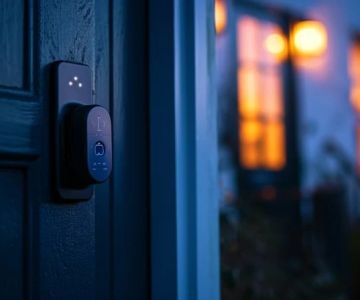
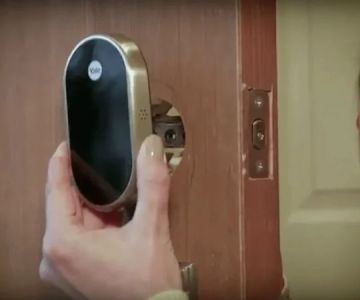
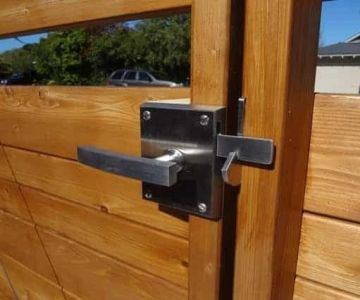
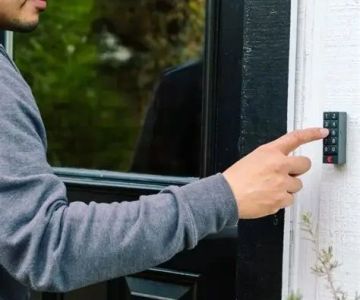
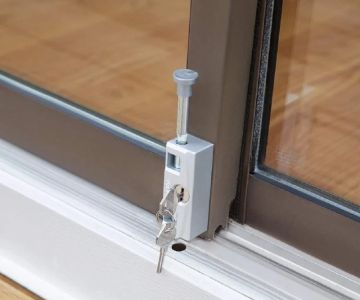
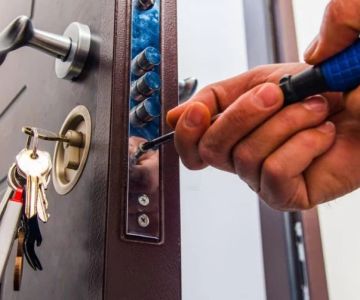
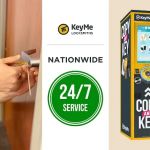 KeyMe Locksmiths1.0 (1 reviews)
KeyMe Locksmiths1.0 (1 reviews) CloneMyKey5.0 (648 reviews)
CloneMyKey5.0 (648 reviews) KeyMe Locksmiths4.0 (107 reviews)
KeyMe Locksmiths4.0 (107 reviews)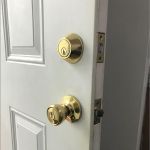 KeyMe Locksmiths4.0 (170 reviews)
KeyMe Locksmiths4.0 (170 reviews)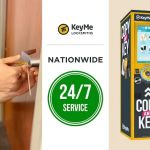 KeyMe Locksmiths4.0 (4 reviews)
KeyMe Locksmiths4.0 (4 reviews) Danny Keys 2474.0 (381 reviews)
Danny Keys 2474.0 (381 reviews)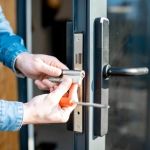 The Risks of Using Locksmith Services Without a Guarantee
The Risks of Using Locksmith Services Without a Guarantee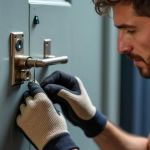 How to Protect Your Business With Master Key Systems: A Comprehensive Guide
How to Protect Your Business With Master Key Systems: A Comprehensive Guide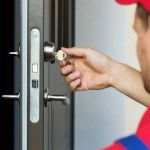 How to Protect Your Home from Lock Fraud: Locksmith Tips
How to Protect Your Home from Lock Fraud: Locksmith Tips How to Secure Sliding Glass Doors With Smart Locks and Deadbolts
How to Secure Sliding Glass Doors With Smart Locks and Deadbolts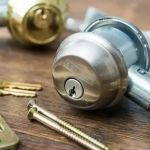 The Importance of Installing a Double Cylinder Deadbolt Lock
The Importance of Installing a Double Cylinder Deadbolt Lock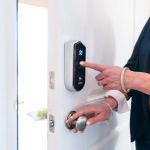 How to Protect Your Home From Lock Tampering and Forced Entry: Essential Tips for Security
How to Protect Your Home From Lock Tampering and Forced Entry: Essential Tips for Security